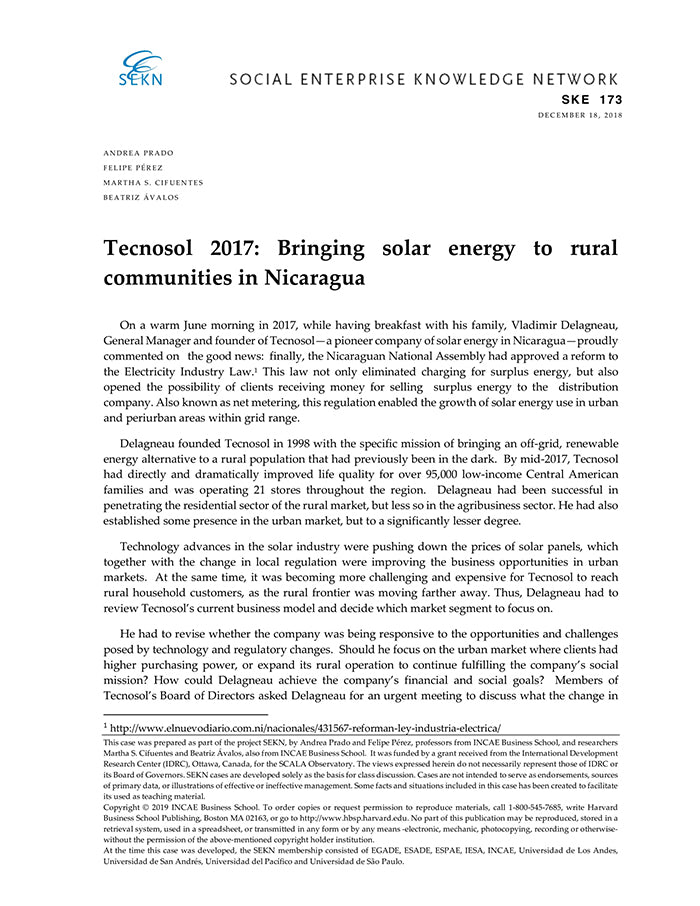TECNOSOL 2017: Bringing Solar Energy to Rural Communities in Nicaragua
受取状況を読み込めませんでした
Tecnosol was a Nicaraguan solar power company founded by Vladimir Delagneau in 1998. Moved by his experience during the civil war in Northern Nicaragua, he returned to the capital determined to provide solar energy solutions to an immense rural population with limited or no access to electricity. In almost 20 years, his firm grew to include 21 stores throughout rural areas of the region (15 in Nicaragua alone) with an innovative business model to better serve clients at the bottom of the pyramid. Tecnosol's business model proved innovative in three key ways. Firstly, the firm made strategic alliances to reach the bottom of the pyramid. Secondly, the firm focused heavily on quality post-sale customer service, decreasing the costs of future maintenance or repairs, while at the same time strengthening the Tecnosol brand and increasing client satisfaction. Lastly, Tecnosol developed several distribution channels to reach their bottom of the pyramid clients in these remote rural communities, providing quality service. Nonetheless, Tecnosol faced major challenges going forward. Technological advancements and mass production increased the efficiency of solar panels pushing down prices. In addition, the frontier of Tecnosol's rural clients moved farther away as electrification efforts decreased the number of rural Nicaraguans in the dark. Tecnosol had been able to tap the rural residential market, but had not succeeded with agro-industrial or commercial sectors, neither with the urban market. In June 2017, the Nicaraguan Assembly passed Law 272, which allowed utility customers producing energy to inject their surplus into the national grid without cost. In some cases, when surpassing a certain amount of energy, customers would be able to sell their surplus. Previously, customers would be billed for the surplus. This practice, known as net metering, was already commonplace in many parts of the worlds. Celagneau wondered, then, how he would continue to deal with each market segment, and what changes he would need to make to his business model to adapt to (a) fast-paced technological changes in solar energy applications, and (b)a changing legal framework in Nicaragua that would allow for net-metering. What opportunities and challenges would these represent for Tecnosol? Would this encourage new players and increase competition? Would it pressure his low-margin finances by increasing his capital needs? Ultimately, Vladimir Delagneau would have to decide on which market segment to focus.
【書誌情報】
ページ数:21ページ
サイズ:A4
商品番号:HBSP-SKE173
発行日:2018/12/18
登録日:2019/9/4


